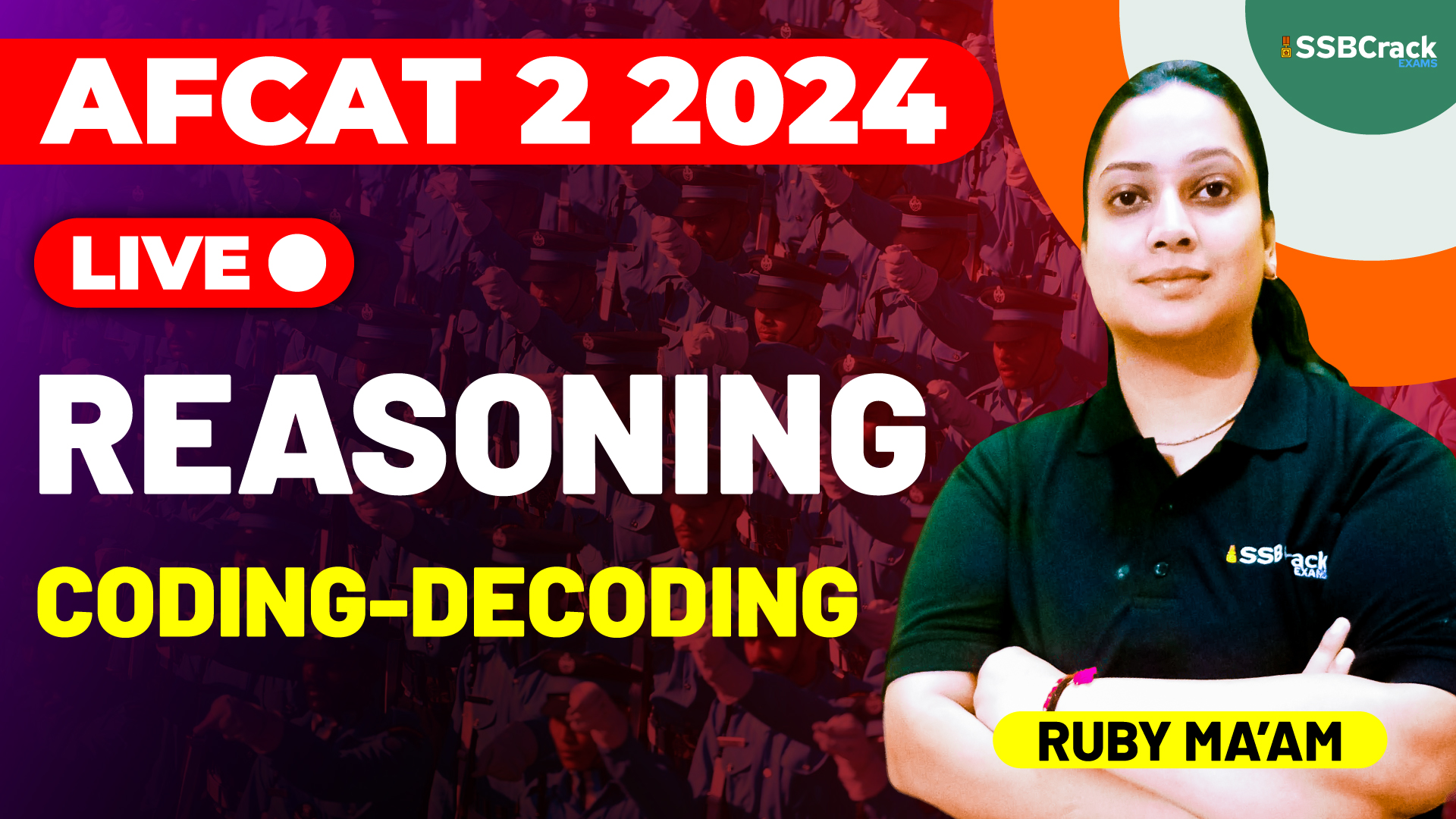Preparing for the Air Force Common Admission Test (AFCAT) involves a multifaceted approach, covering various subjects and skill sets. Among these, the reasoning section, particularly coding-decoding, holds significant importance. Understanding and mastering this topic can greatly enhance your performance, ensuring you are well-equipped to tackle this crucial component of the exam.
Understanding Coding-Decoding
Coding-decoding is a form of logical reasoning where you decipher a coded language or create your own codes based on a set of rules. This topic tests your ability to think critically, recognize patterns, and apply logical reasoning to decode or encode a message. Here’s why this skill is indispensable for AFCAT aspirants:
- Enhances Analytical Skills: Coding-decoding problems require breaking down complex information into simpler components, which sharpens your analytical abilities. These skills are crucial not only for the AFCAT but also for your future role in the Air Force, where analyzing data and making quick, informed decisions is part of daily operations.
- Boosts Problem-Solving Abilities: Regular practice of coding-decoding questions helps improve your problem-solving skills. This is essential in the Air Force, where officers frequently encounter unexpected challenges that require swift and effective solutions.
- Improves Speed and Accuracy: AFCAT is a timed exam, and speed coupled with accuracy is key to scoring well. Coding-decoding exercises train your brain to process information quickly and accurately, enabling you to answer more questions correctly within the allotted time.
- Strengthens Logical Reasoning: Logical reasoning is a fundamental skill tested in AFCAT. Coding-decoding questions specifically test your ability to understand and manipulate information logically. Mastery of this topic thus strengthens your overall logical reasoning skills, making you more adept at handling a variety of questions in the reasoning section.
- Develops Attention to Detail: Successful decoding requires careful attention to detail, as even a minor oversight can lead to incorrect answers. This meticulousness is a vital trait for an Air Force officer, where precision and attention to detail can have significant implications.
- Prepares for Real-World Applications: The principles of coding-decoding are not confined to exams. They are applicable in various real-world scenarios, such as deciphering communication codes, understanding technical instructions, and managing information securely. As an Air Force officer, these skills are invaluable in both operational and administrative capacities.
Tips to Excel in Coding-Decoding
To excel in coding-decoding, consider the following strategies:
- Practice Regularly: Consistent practice is the key to mastering coding-decoding. Solve a variety of problems to familiarize yourself with different types of codes and patterns.
- Learn the Basics: Understand the fundamental concepts of coding-decoding, such as letter shifting, number coding, and symbol coding. Grasping these basics will make it easier to tackle complex problems.
- Use Mnemonics: Mnemonics can help remember coding rules and patterns. For example, associating numbers with letters or visualizing patterns can aid quick recall during the exam.
- Analyze Mistakes: Review your incorrect answers to understand where you went wrong. This analysis will help you avoid similar mistakes in the future.
- Time Yourself: Practice solving coding-decoding questions within a set time limit to improve your speed and efficiency.
Conclusion
For AFCAT aspirants, coding-decoding is not just a topic to be studied; it is a critical skill that underpins success in the exam and in an Air Force career. It enhances analytical thinking, problem-solving abilities, speed, accuracy, and attention to detail, all of which are essential traits for an Air Force officer. By dedicating time and effort to mastering coding-decoding, you are not only preparing for AFCAT but also building a strong foundation for your future role in the Indian Air Force. Embrace this challenge, practice diligently, and watch your reasoning skills soar to new heights.







